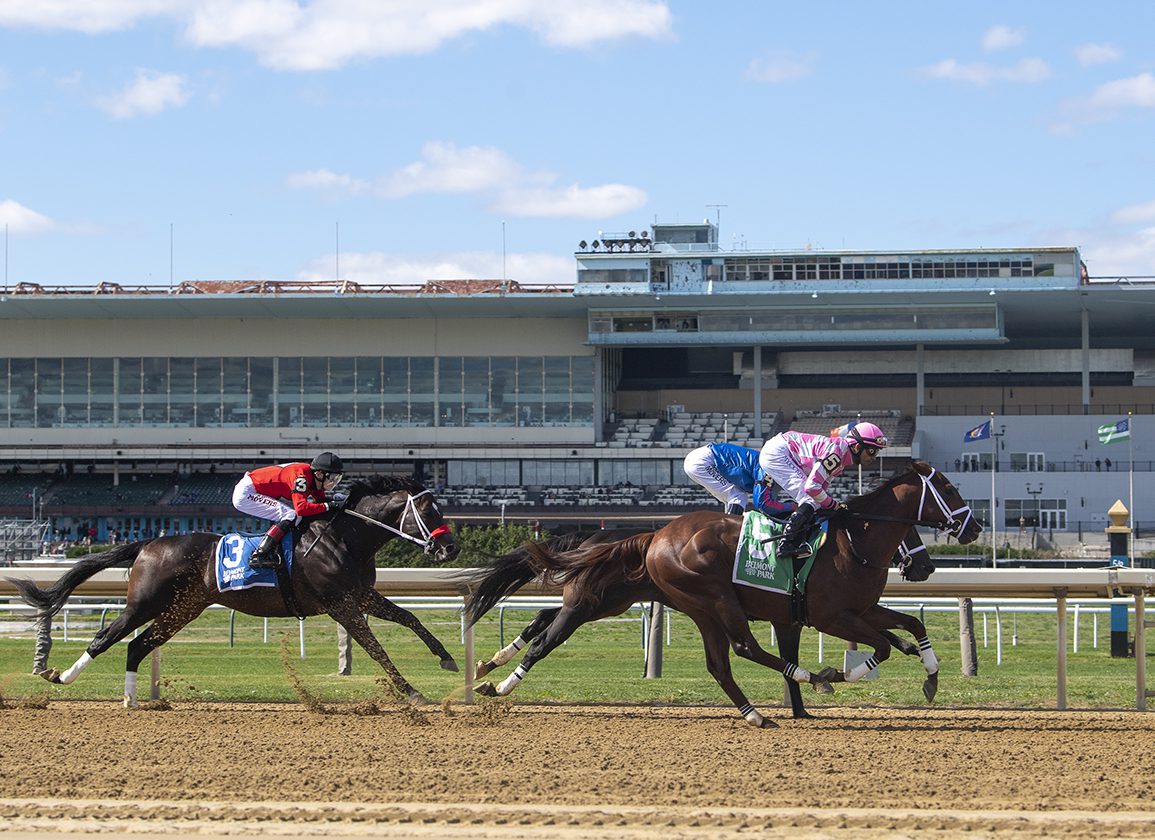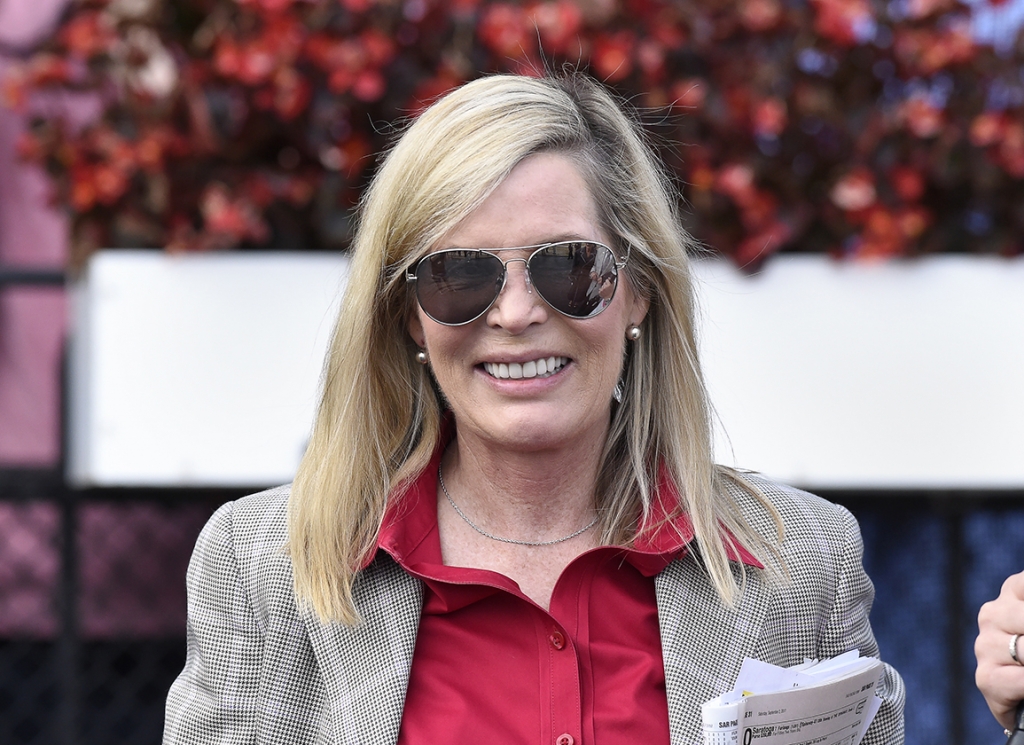By T. D. Thornton
A proposed change to claiming rules in New York would double the time that a claimed horse must refrain from racing outside the state, from 30 to 60 days.
In addition, in an effort to make it easier to acquire Thoroughbreds via claims, another proposed change would extend time periods for owners to be eligible to claim horses.
Those measures, plus several other tweaks to the “Who may make claim” rule 4038.1, were advanced by the New York State Gaming Commission (NYSGC) at Thursday's monthly meeting.
There was zero discussion among commissioners prior to the unanimous voice vote.
The proposed changes must first be published in the state register and then go through a public commentary period before the NYSGC takes a final vote on them at a future commission meeting.
According to a brief written by NYSGC general counsel Edmund Burns that was included in the informational packet for the Aug. 3 meeting, some horse owners and their representatives have communicated to the commission staff that the current claiming rules “need revisions.”
Commission staff met with personnel from the New York Racing Association (NYRA), Finger Lakes, the New York Thoroughbred Breeders (NYTB), and the New York Thoroughbred Horsemen's Association (NYTHA) in crafting the language changes, Burns wrote.
With respect to the time that a claimed horse must remain in-state, Burns wrote that “current rules prohibit a claimed horse from running outside New York for a period of 30 days. The proposal would extend that general prohibition to 60 days, which would mitigate entry shortages that have been experienced at New York tracks. An exception is proposed for horses claimed at Finger Lakes Racetrack toward the end of the Finger Lakes racing season, in which case the prohibition would be limited to 30 days from the end of the Finger Lakes racing season.”
On the time extensions for owners to be eligible to claim, the current version of the rule states that an owner must have “nominated a starter in the previous or current race meet.”
The proposed rewording would change the requirement to owners who have “started a horse: (1) within the previous 120 days, including the race in which such horse started, in a race meeting of the licensed or franchised association; or (2) in the current or previous race meeting.”
New owners who have not previously been licensed would also get a time extension.
Currently, a newly licensed owner “may apply to the stewards for a certificate authorizing him or her to claim one horse during the next 30 racing days following the issuance of the certificate.” The existing version of that rule also states that the stewards “may grant an extension” to that time period “if deemed appropriate.”
The proposed new language would change the “if deemed appropriate” part to an extension of “30 racing days if the certificate holder had entered a claim but had lost” the shake.
“NYRA conducts race meetings of varying lengths and horse populations,” Burns wrote in the brief. “Consequently, the current rule, which requires an owner, in order to be eligible to claim, to have entered a starter in the previous race meeting, precludes some otherwise active owners from claiming horses.
“Some owners may not have participated in a previous meeting because of the meeting's short duration or because racing opportunities had been incompatible with the owner's stable of horses. The proposed rule would address these concerns by allowing claimants who have raced on a circuit within 120 days, which would increase the number of owners qualified to make claims,” Burns wrote.
“Additionally, due to the frequency of multiple claims on a single horse, it is possible that someone actively trying to claim may not succeed in acquiring a horse within 30 racing days, which the current rule requires,” Burns wrote.
“Allowing 30 additional days for holders of a certificate of eligibility would provide an owner with an opportunity to claim when the owner has not been successful within the first 30 days of a race meeting, because the owner has lost the opportunity to claim to another claimant when multiple claims had been made on the same horse. Creating an opportunity to extend claiming eligibility for unsuccessful claimants would allow these owners additional chances to claim a horse,” Burns wrote.
Additionally, current NYSGC regulations provide that when a horse is claimed from a particular value class, the horses is ineligible to start in the same value class for 30 days.
According to the brief written by Burns, “A review of recent data, however, indicates that horses generally run on a 28-day schedule and condition books generally schedule a value class every 28 days. Under current regulations, a claimant who wants to start a horse again in the same class may be effectively forced to wait 56 days from the date of the claim. The position has been advanced that such period is unnecessarily long and causes issues for owners, trainers and the racetrack, which seeks to fill competitive races.”
The solution, according to the proposed rewording, will be to make the regulation state that, “If a horse is claimed the horse shall not start in a claiming race for a period of 20 days from the date of the claim for less than 25 percent more than the amount for which such horse was claimed.”
A new clause would be inserted that further states, “For a period of 10 days thereafter, a horse is eligible to start for a claiming price equal to or greater than the price at which the horse had been claimed. On the 31st day, the horse may start in a claiming race for any price.”
Burns wrote that “By reducing the requisite waiting period, owners will have a greater opportunity to start a horse for the price at which the horse had been claimed, given that the owners would be able to gain access to races that had already been written in the track's condition book 28 days in advance.”
Rice penalty revision on target for Sept.
Separately, NYSGC Executive Director Robert Williams detailed the expected timeline for commissioners to revisit a possible penalty for trainer Linda Rice, who on June 8 had a New York Supreme Court Appellate Division rule that a three-year banishment imposed by the NYSGC was “entirely unwarranted.”
As TDN reported back in June, the Gaming Commission fined Rice $50,000 and revoked her license for three years in 2021 after investigating claims that Rice received favorable treatment from the NYRA racing office and that the racing office was releasing to her the names and past performances of horses that had already been entered in races, giving her an unfair advantage. It was further alleged that Rice had paid racing officials in exchange for the information, a charge she denied. She did admit to routinely giving members of the racing department, as well as the gate crew, Christmas presents.
Williams said that the court ruling upheld the commission's determination that the “improper practices” rule had been violated and that the court rejected Rice's constitutional claim. But the court overturned the three-year revocation, and sent the matter back to the commission to reassess the penalty “with the constraint that any reassessed penalty cannot contain a license revocation.”
Williams said the case materials will be recirculated to each of the commissioners, and that both the commission's counsel and Rice's legal team have been asked to update their post-hearing briefs with respect to penalty recommendations.
“The matter should be set for consideration at the commission's September meeting,” Williams said.
Brian O'Dwyer, the NYSGC chairman, said, “I urge the commissioners that, obviously, the Rice matter is something that we need to look at. In particular, three of the commissioners are new to the matter, having been appointed after the penalty had been assessed. Obviously, we're under court mandate to reassess that penalty, and I know that we'll all take that very seriously.”
Not a subscriber? Click here to sign up for the daily PDF or alerts.







